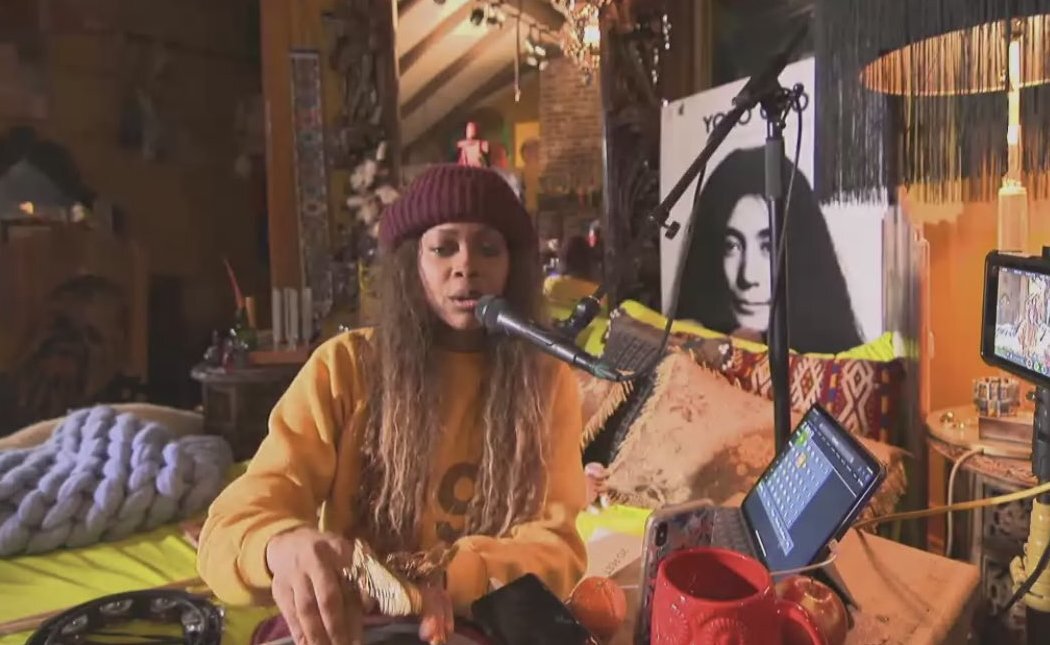Telefon Tel Aviv, Take Two

One half of the New Orleans-born electronic duo tries to see if he can return to the project without his late partner.
When Nine Inch Nails played Voodoo 2013, Joshua Eustis was part of the band. He was born here, went to Loyola where he studied music composition, and it was here that he formed the band that got him out of town—Telefon Tel Aviv. It wasn’t that he wanted to leave, but the duo’s recently re-released debut album, Fahrenheit Fair Enough—with eight previously unreleased tracks—occupies a space that didn’t have an audience in the late 1990s. On it, mechanic buzzes, whirs and ticks simultaneously animate and interrupt melancholy electronic dance music. “TTv” begins with a placid two-chord pattern on what sounds like an electric piano, but it comes to itchy life when disruptive sounds skitter around, darting from side to side and back and forth between the speakers while a gentle, Eastern melody joins the mix. It doesn’t assert itself as much as it calmly comes into being, creating a zen moment that almost draws your attention away from the glitchy elements. Almost. Take out the sad undercurrents and you get Aphex Twin—one admitted influence. Push the mechanical elements and you get Autechre—another.
At the time, the New Orleans music establishment didn’t embrace electronic music, seeing it as a confrontation to the idea that the city’s music was an expression of its humanity. To be fair to New Orleans, many city’s scenes had similar reservations about techno and other electronic musics. The audience for it flew under radar, but it existed. Disco Donnie’s parties at the State Palace Theater had already become events, and Telefon Tel Aviv found an audience too, but it was much smaller and didn’t extend much beyond Monaco Bob’s, The Abstract Café and the RC Bridge Lounge.
“We played shows, but it was house parties and little clubs,” he says. On a tip, Eustis sent a tape of the album that would become Fahrenheit Fair Enough to Hefty Records in Chicago. “He called us the next day and said I love this and want to put it out, and it became evident that we needed to be there,” Eustis says. “We kept hearing from peers that we could do this in Chicago and play in bigger clubs and get bigger crowds, and people were appreciative of it. We were, like, We’re throwing seeds on concrete here in New Orleans. Let’s go somewhere where this makes more sense.”
Telefon Tel Aviv released three more albums—Map of What is Effortless (2004), Remixes Compiled (2007), and Immolate Yourself (2009)—before bandmate Charlie Cooper died tragically and mysteriously that year at the age of 31. Eustis honored the duo’s remaining touring obligations, but soon afterwards he put the Telefon Tel Aviv name down.
Eustis and Cooper met in 1998 at a department store downtown. Eustis was with his girlfriend and Cooper was with his. Somehow, the two found each other and started talking about gear and “weirdo, outsider electronic music,” Eustis recalls. “He said, Hey, I’m working on this thing right now and I’m stuck. Why don’t I bring it over and let’s see if we can work on it together. It ended up being ‘Introductory Nomenclature’ which is the second-to-last song on the first record.”
The two quickly figured out their working relationship. “If a Telefon Tel Aviv song was like a plate of food, I’d be the guy who put the salmon on there, and the green beans and the rice,” he says. “I would dress it up, then I would pass it to Charlie and he would smear it around like a grumpy kid. I'd throw paint on the canvas and he'd come in and smudge it around and make it a complete work.”
Eustis hears the band’s influences at the time when he listens to Fahrenheit Fair Enough. In addition to Aphex Twin and Autechre, the duo were influenced by Steve Reich, The Sea and Cake, Tortoise, Stereolab, and New Orleans bounce. “All the beat structures are lifted from bounce rap,” he says. Beyond that, it’s hard for him to think about the choices they made musically. “I don’t think about it like that, but it definitely makes me feel like a 21 year-old punk again,” Eustis says. He has lived in Los Angeles for the last five and a half years, and he can’t hear Fahrenheit Fair Enough without recalling the circumstances of its making. “I was living at my mom’s house and Charlie would come over every day,” he says. “We’d go out and get wasted all night, work all morning, then sleep all day. It reminds me of a really fun time in my life when we were partying like idiots.”
Telefon Tel Aviv never again sounded as glitchy as it does on Fahrenheit Fair Enough. They’d taken that as far as they could, Eustis thinks. “But with new technology today, who knows?” It remained part of their sound, but they folded strings into five songs on Map of What is Effortless, giving the album the lushness that Fahrenheit Fair Enough hinted at. Tracks were less zen and more noir-ly romantic on Map of What is Effortless and Immolate Yourself, the latter with song structures and a sonic vocabulary that anticipated the return to electro pop.
Since Cooper’s passing, Eustis has stayed busy, including the tour with Nine Inch Nails—a relationship that started while both bands were based in New Orleans. They met in 1995, and when Trent Reznor heard through a friend of a friend the tape that Telefon Tel Aviv sent Hefty, he invited Eustis and Cooper to work with him on collaborations and remixes. The one they did for “Even Deeper” is on Remixes Compiled. “For a few months, we were in Nothing Studios, which was pretty cool,” he says. Before the Nine Inch Nails tour, he did production work and helped others with their music. Without Cooper, Eustis had a hard time deciding what his music was, and that uncertainty meant he wasn’t sure he was ready to get others involved, either as collaborators or business partners.
Eventually though, Cooper’s absence became a manageable reality. “You never find full-on peace with it, but there came a point when I got used to him not being around,” Eustis says, then corrects himself. “You don’t get used to it. You get better at dealing with.” He found his voice if for no other reason than because he had to. He had been the linear thinker of the two and had to round out the way he approached music. “I’ve always been more about order and building and he was about chaos and entropy and breaking things and destruction and lighting things on fire,” he says. “ Now I think about music more architecturally and spatially instead of from left to right.”
In 2014, he released Move to Pain under the name Sons of Magdalene, and he has a project called The Black Queen with Greg Puciato of Dillinger Escape Plan. He and Turk Dietrich of New Orleans’ Belong released a self-titled album this year for their project, Second Woman, and have another album coming out early next year. Eustis knew Deitrich before he met Cooper, and the three of them and Fredo Nogueira—who subbed for Cooper on the final Telefon Tel Aviv tour—were constant companions during the band’s formative years. “The four of us were inseparable,” Eustis says. “If Charlie and I had something playable, we immediately took it to Turk’s house for Turk and Fredo, and vice versa.” Second Woman got hot quickly, perhaps because of that background. They played Atonal Festival in Berlin last August two months after releasing their debut album, and they recorded the second album before that one had been released.
They’ve got plans for activity after the second album is released, but Eustis is careful to carve out time to finish new material that he will release as Telefon Tel Aviv. He doesn’t have a release date yet that he’s comfortable talking about because he still has things to figure out.
“Now everything’s at a state where I would give it to Charlie and he would break it,” he says. “What would he do here? How would he change this? I have to try to enter his headspace and think about what he would have done to these pieces of music.”
var myNativeAd = { consumerKey: "hbfXS0hRQY4yB2IIyHFh29",use_external_settings: true }






